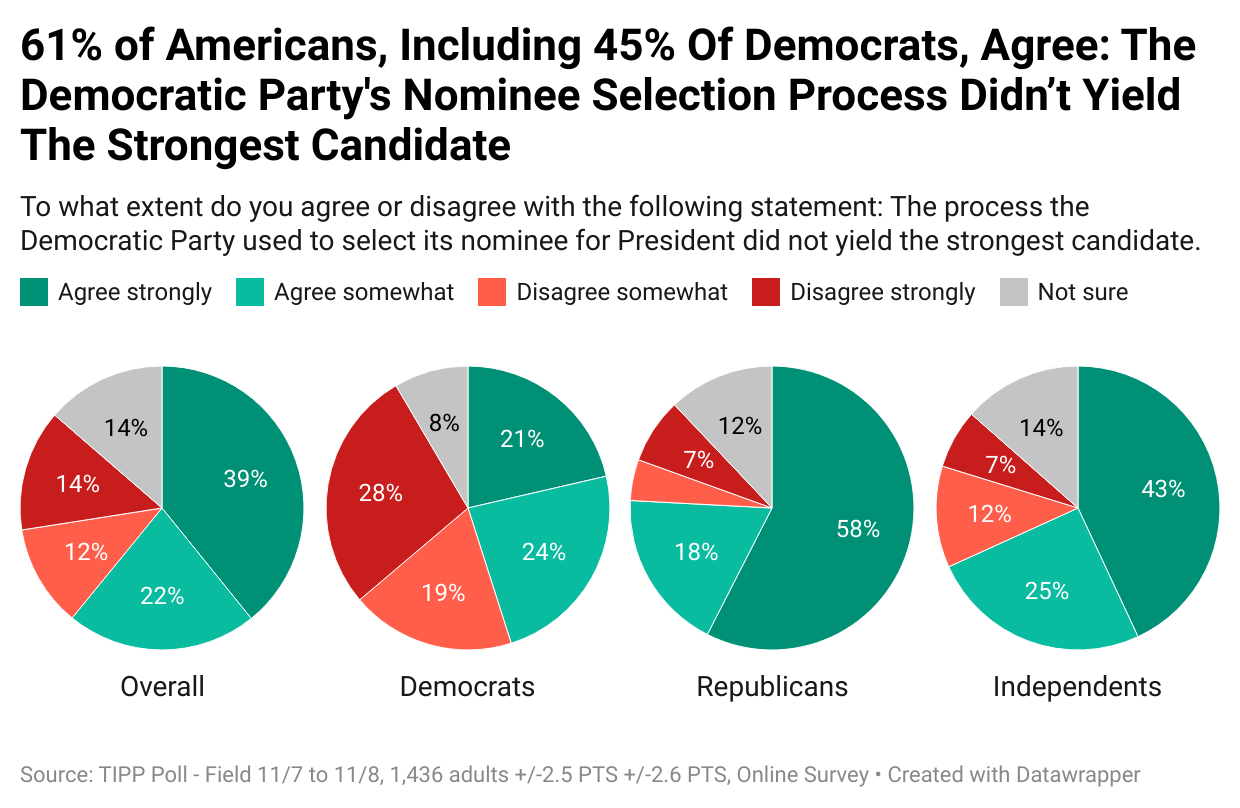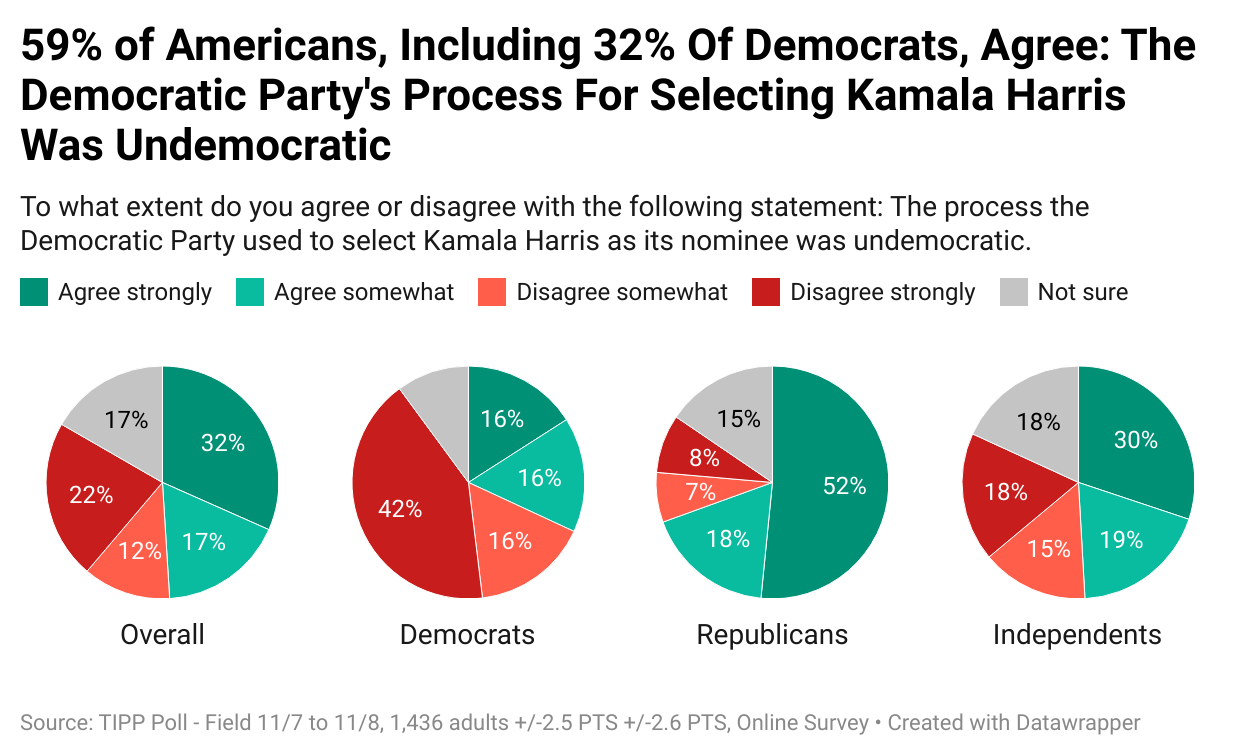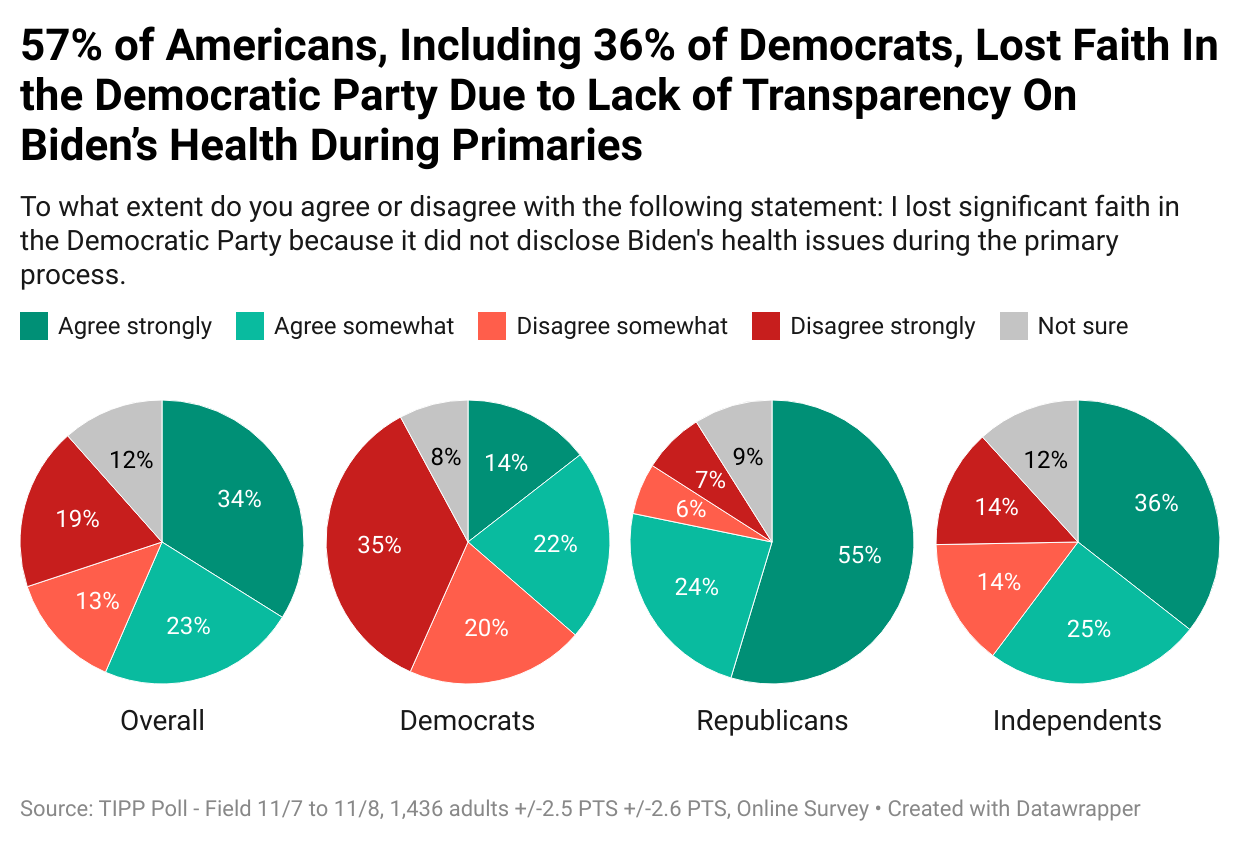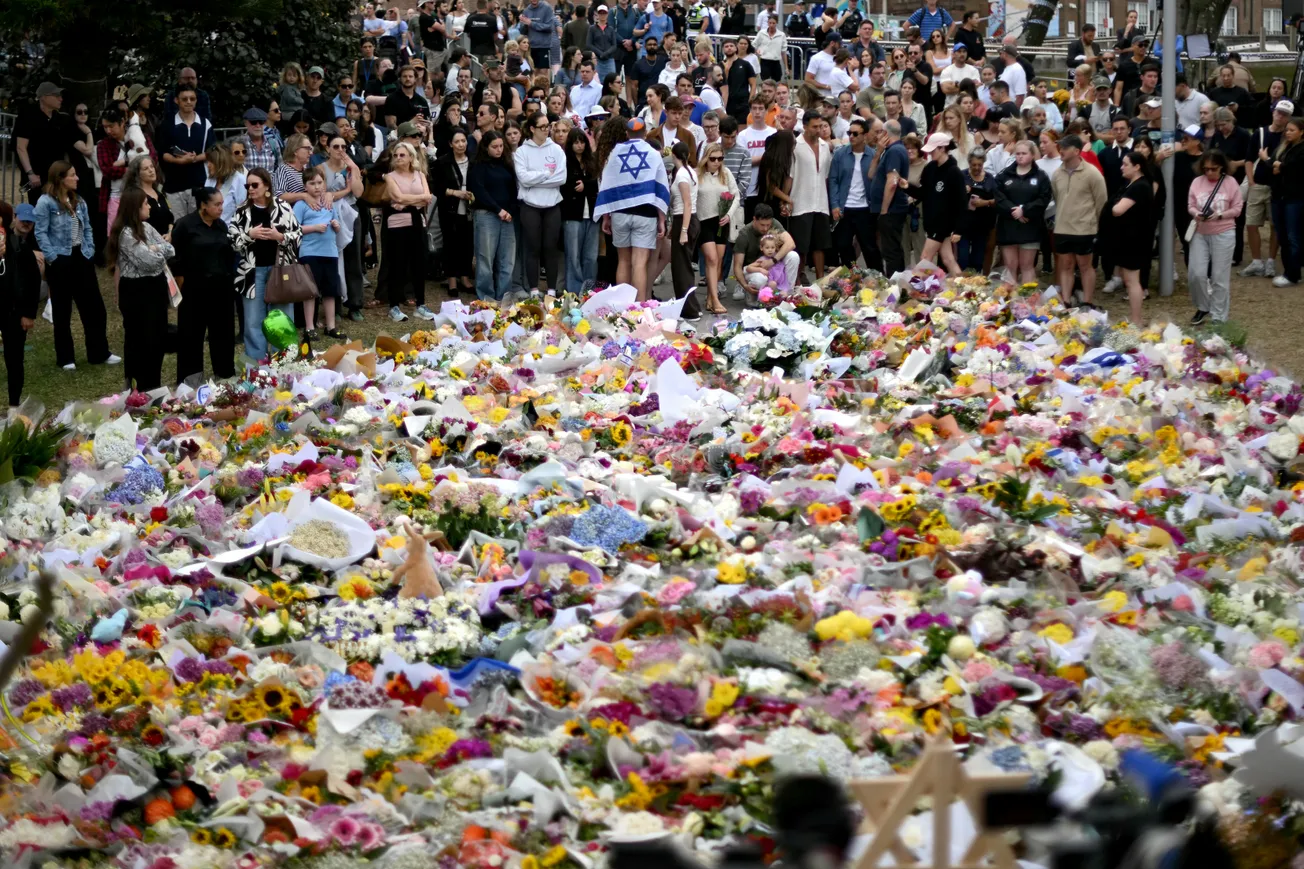Over the last four months or so, American voters polled by I&I/TIPP repeatedly expressed their deep dissatisfaction with how the Democratic Party forced out candidate President Joe Biden, who won 15 million primary votes, and replaced him with Vice President Kamala Harris, who won none. With the election's end, voters are still upset, I&I/TIPP Poll show post-election data show.
This "buyers' remorse," as it was called earlier, appears to be a big reason why Harris received millions fewer votes that President Biden won in 2020, a mere four years ago. It also helps explain the big shift in votes from previously Democrat-only voters: Blacks, Hispanics, the young.
As noted earlier, the poll asked voters whether they agreed or disagreed with the following three questions:
- “The process the Democratic Party used to select its nominee for President did not yield the strongest candidate.”
- “The process the Democratic Party used to select Kamala Harris as its nominee was undemocratic.”
- “I lost significant faith in the Democratic Party because it did not disclose Biden’s health issues during the primary process.”
The first question tells the tale: Overall, 61% of all voters said they either agreed "strongly" (39%) or "somewhat" (22%). Another 14% said they were not sure. That, by the way, is even larger than the 58% who agreed in the last poll taken in October.
It should be no great shock that those in the Republican and independent/third party camp would strongly agree that Kamala Harris wasn't the strongest candidate with whom to replace Biden.
Among Republicans, 76% agreed while only 12% disagreed. Independents weren't too far away from the GOP at 68% agreeing, and 19% disagreeing. But even 45% of Democrats agreed, compared to 47% who disagreed. The share of Democrats agreeing rose five percentage points from last month, a rise no doubt the result of Dems surveilling the wreckage of Harris' misbegotten campaign.

But what about the second question? That is, whether the Democratic Party's "process" for picking Harris as the candidate was "undemocratic"?
Among all voters, 49% agreed either "strongly" (32%) or "somewhat" (17%), while 34% disagreed either strongly (22%) or somewhat (12%), with a sizable 17% not sure.
As often is the case, Democrats seem to inhabit a different political world from that of the GOP and indie voters.
While roughly half of all voters called Harris' irregular selection as the candidate "undemocratic," among Democrats 32% agreed.
While that's less, it still says something significant: A third of all Democratic voters did not believe that the selection of Harris was done democratically, while 58% disagreed.
By comparison, 70% of Republicans agreed and 15% disagreed. For independent and third-party voters, 49% agreed and 33% disagreed.

In the final question, asking whether voters had "lost significant faith" in the Democratic Party as a result of its somewhat-questionable failure to disclose President Biden's failing mental health, an overall 57% agreed either strongly (34%) or somewhat (23%). Just 32% disagreed, either strongly (19%) or somewhat (13%).
Once again, the breakdown was politically predictable. Within the Dems' domain, 36% agreed while 55% disagreed. That compares to 79% agree and 13% disagree for Republicans, and 61% and 28% for independents.

What to make of all this?
If anything, post-election voters within the Democratic Party show even greater dissatisfaction and "buyer's remorse" after the election results than before. As we noted above, this might in part explain the sharp decline in Democratic enthusiasm for Harris in the waning days of her run, even after her campaign spent a record $1 billion-plus on this election.
But it also speaks to profound issues within the Democratic Party itself, which now appears to be in a doom-loop of election-loss recrimination, rather than constructive self-examination over the reasons for their losses, not just in the presidential election but for Congress as well.
As historian and Hoover Institution Fellow Victor Davis Hanson summed up:
"There were plenty of indications long ago in key states of a Donald Trump thunderstorm: defections of minorities, anger among both the Jewish and Muslim voters, alienated union members, massive increases in Republican registrations, and non-Election Day balloting."
In short, Trump was elected not just by Republicans, but by disaffected Democrats who were angry at their party's undemocratic selection process and with the unknown quantity of Kamala Harris herself.
She flip-flopped so much on major issues – including gun control, oil and natural gas fracking, single-payer healthcare, expanding the Supreme Court, federal job guarantees, and police funding and criminal prosecution, to name just a handful – voters had no idea where she stood.
Worse, she alienated Democrats' base voters, as Hanson noted in a scathing post-election breakdown of the vote, who were hurting from the last four years of lockdowns, inflation and declining real wages:
"Democrats know —but will do nothing about the fact—they have become the party of the upscale professionals and the rich and the subsidized poor," Hanson wrote. "They have alienated the entire middle class — white, black, Hispanic — and are ceding it to the new Republican populist-nationalist party."
This showed up in Trump's sweeping the seven all-important "swing states," where Democrats have often taken home the electoral prize and won presidencies. In losing those states, Kamala Harris didn't lose the election; she lost the support of her own party.
If you're an official of the Democratic Party, the electoral data are damning. Trump made significant gains among African-American voters, Hispanics, women, and young voters, while holding on to his strong support among white men.
"Widespread gains for President-elect Donald Trump helped him carry a number of key swing states that decided the 2024 race," wrote NPR, in its post-election analysis.
"In Georgia, Pennsylvania and Wisconsin – places President Biden won in 2020 that flipped back to Trump this year – turnout data from the Associated Press shows a marked shift to the right in nearly every county in each state. Victories in these three states put Trump over the needed electoral vote threshold to win the White House."
The remorse Democrats showed in recent I&I/TIPP data over how their own party hid Biden's mental issues and used undemocratic means to replace him with Vice President Kamala Harris, a weak candidate, pointed to Trump's winning result.
One thing is clear, as media outlets from both sides of the political spectrum have observed, the Democrats' big mistakes and Trump's stunning 2024 triumph appear to mark a major political realignment, one that could influence elections for years to come.
I&I/TIPP publishes timely, unique, and informative data each month on topics of public interest. TIPP’s reputation for polling excellence comes from being the most accurate pollster for the past five presidential elections.
Terry Jones is an editor of Issues & Insights. His four decades of journalism experience include serving as national issues editor, economics editor, and editorial page editor for Investor’s Business Daily.









